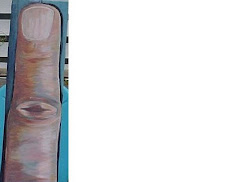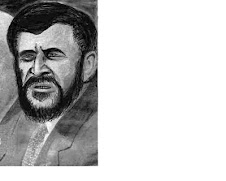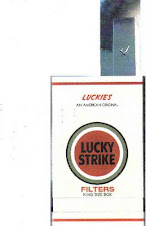 |
| The Yankees' game may be in its last innings. |
While the Financial Times worries about the global recovery's risk of stalling, Dimon Jim, the crook running Chase, warns of another bank-caused crash (although he, naturally, did not mention the fact that it's the banks, once again, or more accurately, the shysters running them, that'll cause it), even as his nemesis as well as co-conspiratorial TBTF bank, Wells Fargo, per the WSJ, warms up to risk, mayhaps the very same risk Dimon Jim's worrying about.
Meanwhile financial analysts are worried that risk is too far out on the proverbial limb, and all of us wonder what the hell's going on, but no one talks about the obvious, which has lately been renamed, for some reason, the elephant in the room . If there were an elephant in the room, I think we would be mentioning it, so what that's about, I'll skip, so more to the point, what's money about, and why aren't we collectively, or us, as in you and me, or you and the people you know, or me and the people I know, talking about it and trying to unravel its mysteries?
As the world becomes more and more cognizant of the fact that money, although a man-made invention, runs the world more by its own rules more than by any made for it at its inception, and wielding greater influence than any of the other manmade conventions, such as government, religion , or even corporations (it's interesting to note that as I wrote those three, the one that I went to automatically capitalize before I stopped myself was "corporations", however, since it is they, of the three, that have the most access to and control over the money, I guess that makes sense in a sad sorta way), it becomes more resigned to its dynamics, leaving the intricacies of its workings to economists, who are not in the least concerned about them, and, even if they were, have shown not the least aptitude for either explaining what they are, or, if they were actually adept, we perhaps wouldn't care as much, because they would be proving their expertise by the wise utilization of that knowledge (ie, the world wouldn't be going to hell in a mortgaged handbasket on the verge of sinking under its own rehypothecated, over-leveraged, risk-laden weight) .
Like many of man's wonders, whether the automobile for which entire neighborhoods, swaths of open land, and myriad acres of woodlands were demolished and paved over, or computers, whose needs are addressed before those of the users' for whom they're supposedly designed, money itself is no longer capable of providing the very humans that invented it with the services for which it was first devised. It's now running like a Zhiguli, a Soviet-era model Fiat, shaking terribly as it bounces over the bumpy roads of the monde moderne's manufactured mayhem of mystery-money and leveraged debt.
This should not really surprise us. A currency designed to serve the needs of empire has to be kluged in order to fit into the needs of nation-states or, perhaps more relevantly, as we head back to the future and neo-feudalism takes shape, feudal life, for which, although many don't realise it today, there was very little need of actual cash. As recently as the 20'th century, in as modern a country as the US, in as all-American an enterprise as the movie industry, in the film "The Misfits", the protagonists are arguing and struggling for a way to maintain their way of life without having to get a 'job', as they would then be wage-slaves, ie, they would lose their freedom, because that's what they felt a job did, took choice out of your life leaving as your only choice what you can spend the dwindling remuneration that's left after paying for everything the business pays you to give up your freedom for.
But that used to be part of the package: a pension, healthcare coverage, vacation time, education, and training. These are costs and risks for which you now pay, or take out loans to pay, in order to learn what may be obsolete by the time you're able to present the certificate of training, smirkingly referred to as a degree, to any prospective employer, a liability now borne by the employee. So is the transportation to and from the place where you trade your time in exchange for some monetary compensation. But, with the burden of all those other expenses not only rising, but falling onto the workers instead, even the freedom to consume has been drastically reduced, as that so-called "disposable" income they like to talk so much about, gets eroded to nothing and instead, whatever you have hopes of earning in the future, has already been spent, often via high-interest credit card debt, long before you've gotten paid.
All this because the corporation, by monetizing everything, have, right in front of our faces, monopolized what is considered to be work. Only that which can earn currency is considered work because it is only income from said work that the government can tax to keep its many nefarious operations going, most important of which, is its over-hyped, testosterone-soaked, gargantuan, world-spanning militarism and its many ancillary industries, such that it now feeds more into the US economy, and the global economy, than the largest other industry, the automobile industry. The two of them, together with the nuclear and other energy-producing industries, go hand in hand, usually to the citizens' place of employment to garnish their wages, the rich being immune to such raids because their 'earnings' have no connection whatsoever with labor, or, more accurately, their labor. Because labor is a concept they disdain unless it's somebody else providing it. Another of life's paradoxes that we all like to ignore: the very thing that the rich would sell their own children to avoid having to do themselves, the rest of us fall on the ground in front of them to kiss the hem of their robes for the 'privilege' of doing it for them, and for a pittance instead of its true value.
In this new arrangement, money's value has no connection with actual work. In the FED's printing of it by the trillions, yes, trillions, something that's supposedly represents work, or value, or as I would argue, energy, is simply, as in banking, when they make a loan, although at least with that there's a mandate to the person the loan is made to to then go out and do some work so as to get the cash to pay back that loan, with the FED, the Monetary authority (what kind of authority can just go out and break its own rules willy nilly?), just divorces money from its moorings as a product of labor and cynically uses government debt as the vehicle for its monetary legerdemain, stuffing its balance sheet with debt it has no ability to pay down.
So what, then, is money? And if it can make, or does make, as stated in the "Cabaret" song, the world go around, then when it's debased to the degree that it has been now, doesn't it, logically, stop the world from going 'round? Or at least our world? It must at least do the opposite of what their stated intentions are, slow it down, instead of speeding it up. And, as a corollary to that, if, as Einstein, perhaps hyperbolically, stated, "compound interest is the most powerful force in the universe," then isn't ZIRP a policy that ensures the most powerful force in the universe is disabled, and wouldn't that be the surest way to dampen growth and bog down the economy in chronic torpidity, or, I don't know, stagflation, as Larry Summers prefers to call it? And therefore NIRP must be synonymous with institutionalized deflation and a chronically sclerotic, anemic economy ... one that's that way by design. This is how the powers that be reign in the processes that are causing the very climate to change right before our eyes. Not by redesigning the currency and financial systems so that they serve the greater part of the population, but by keeping and cementing into place their own places of privilege by calcifying the current hierarchy wherein their position remains in the ascendancy, thereby insuring that it stays that way, yet at the same time, retarding the rate at which CO2 production is accelerating.
But that's not what money is supposed to be used for. It is a unit of exchange, a means of resource transfer, one that has been historically used as a store of value as well, however this last use of money seems to have come to an end. When the sanctions were placed on Russia, the oligarchs who had been fleeing Moscow to take roost in London, stuffing their ill-gotten gains into its banks' vaults, in even greater numbers than the Whites in 1918. Now, fearing for the safety of these pirated funds, they've started relocating these monies back to Russia where the Western Banks can't freeze their assets off. What this demonstrates to much of the world, and the reason that even US allies are supporting China's formation of the AIIB, is that, by first turning it to their own nefarious ends, and then politicizing the World Reserve Currency, which economists claim to be a non-political tool of exchange, the confidence in the 'reserve' part of it, as a store of value, has been even further eroded.
And even as the Russian oligarchs were now placed more under the aegis of Putin, the very man for fear of whom they left in the first place, we see the western Banks, as lawsuits that are still, eight years after they had engineered the collapse of the very institution whose perversion had showered them with fraudulent 'earnings', are still haemorrhaging billions in fines and lawyers fees, yet none of its avatars of defalcation are remotely threatened with any clawback of their ill-gotten fortunes or imprisonment for their criminal behavior.
Thus we see the roles that were assumed following the Revolution of 1918 reversed, with Russia becoming the champion of real monetary legitimacy, upholding the law to protect its citizens from the ravages of a well-ensconced, criminally-minded elite of oligarchs, and the West now the despoiler of nations, the conniver of theft, the debaser of currencies and enabler of the Plutocrats who are all but unassailable. It is in their privileged and cloistered domains, not on the floor of the Senate or House, which have degenerated into nothing more than a Parliament of Whores (to use P.J. O'Rourke's term), that the decisions of our government are now made.
So once again the world looks to Russia for Hope. Because the Obama Presidency, that ran in 2004 on exactly that, Hope, immediately betrayed any belief that anybody had in him by declaring both its intent to "Look forward" and forget the past, ie, not bother to punish the hoods that had hijacked the Banking system, and his statement, a la Bush, that "The American Way of Life Will Not Be Compromised", by which he insidiously promised that the reign of corruption and underhanded financial dealings, and fossil-fuel-based high-octane consumerism, and its associated rampant unabashed militarism, would simply continue until it collapsed from the rot spreading throughout its ever-more tenuous economic underpinnings.
Instead of the spare "Change" that Obama's left us with, though, Russia now perhaps is in a better position, as it has the fervent desire of the underclasses of the world pinned on its success, to redefine money, and cash, and bankings' role in the economic life of countries, that no other power in the world possesses. Perhaps this time, since the sanctions imposed by West has inadvertently united its population such that, unlike in 1918, there isn't a panoply of squabbling factions ripping it apart, but has formed a consensus among its people who want their lives to matter, who just want a modicum of Hope, and aren't so mired in a tawdry ignoble pursuit of empty materialism, but have a belief, not in the next-world promises of eternal salvation, which they may hold also, but in the hope that a measure of worth can be attributed to this life's endeavors outside of complete dedication to the accumulation of so-called assets, the value of which, as we've now witnessed at least since the turn of this New Century, can dissipate like a cloud into nothing but a chimera, a sop thrown to the unwary who believe they have earned some security when all they've received are empty promises and constant War.
Ian McEwan's novel, "The Innocent", begins with the statement, "It's not the Germans or the Russians who are the problem here. It isn't even the French (Lol). It's the Americans. They don't know a thing. What's worse, they won't learn, they won't be told. It's just how they are." This is said by an Englishman in post WW2 Berlin, but it's still relevant today. Because then, as both The East and The West thought they could use Hitler to their advantage, and Hitler thought he could use the animosity of these two opposing forces as a bulwark of his own, as it would keep them from uniting against him, all three were proven wrong in their Realpolitik calculations and we reaped the whirlwind, in the form of an orgy of destruction.
We can see the same calculus going on today, with the weak Ukraine in the position of the mighty Germany. But Germany wasn't mighty when the initial cynical plans to rape it of all its resources was put into place in 1922 with the inclusion of War Reparations in the Treaty of Versailles. But the very conspiracy that contrived to keep Germany destitute and unable to wage War again, had the exact opposite effect, and, using Spain as the proving grounds for its Wehrmacht and subterfuge to rebuild its arsenal not only right under the noses of those who considered such a circumstance dangerous, but with their funding. Because with the Rentenmark's replacement with the Reichsmark, it, following the rise of the Nazis, was recruited as a financial weapon in the quest to rearm Germany. The Reichsbank, like every Central Bank today, turned on the printing presses to finance Adolf Hitler's jobs programs. To control inflation, severe wage and price controls were instituted, foreign currency exchange rates were manipulated, and interest rates increased.
Companies were created with inadequate capital for their operations and authorized to issue bonds exchangeable at a 1:1 rate for Reichsmarks and sold at a discount. The Reichsbank rediscounted the bills of these companies creating a monetary expansion without formally renouncing the link to gold.
We can see the many of the same subterfuges going on today, not only with nationalistic currencies, such as the Yen and Yuan, Won and Hong, but with the reserve currency itself, such that it had to be taken off the gold standard in order to be viable.
What this means is that a country such as Greece, that owes so much money to foreign debt holders and to its own banks and those of the EU, can, as it did yesterday, sign an agreement for the purchase of S-300 missiles from Russia, a country which , since Greece is still part of the EU, there are sanctions against its trading with. This, together with the sale of the same to Tehran, suggests that some kind of new monetary regime, outside of the purview of the IMF and World Bank, is, whether the AIIB is successful or not, already in de facto formation.
This isn't the kind of new currency or redefinition of money that I started to talk about at the beginning of this post, though. It may, however, be a step that is necessary for the world to take in order to create the conditions under which such a new conception of money, in which it is restored to its position as a true reflection of the value of the economic well-being of the underlying economy and therefore the productivity of its citizens, that we find ourselves in so much need of today. Because, although the honesty of a country's monetary system alone may not preclude War, the current state of utter dishonesty of the entire global monetary regime not only guarantees War, but, despite the vociferous denials from all those who shocked ...SHOCKED! ... that their net worth is completely dependent on it, requires constant, unending War.



















































No comments:
Post a Comment